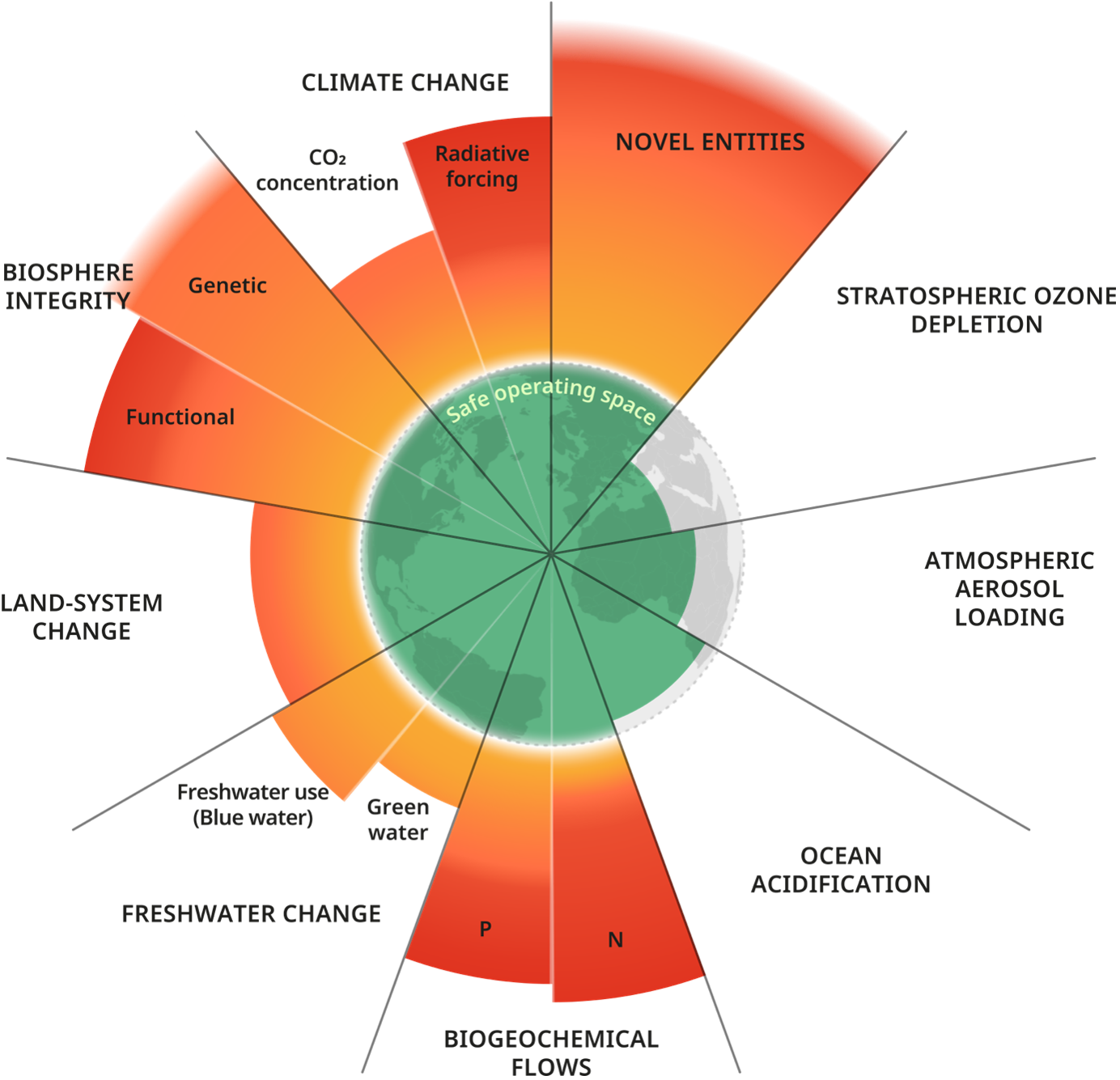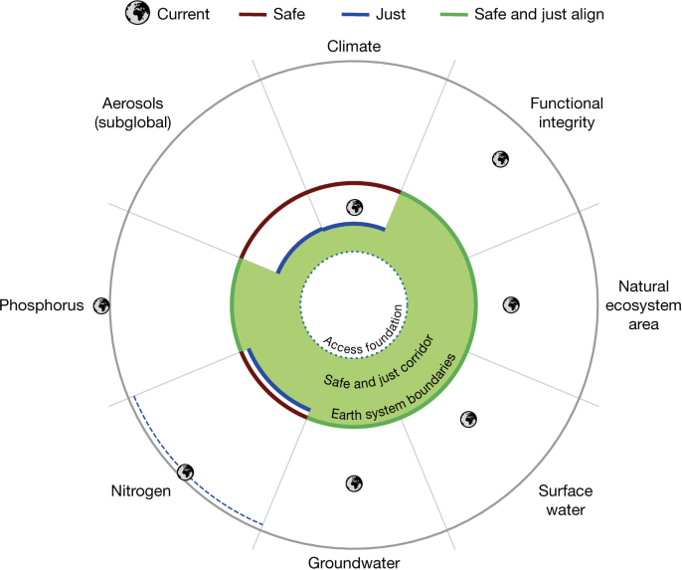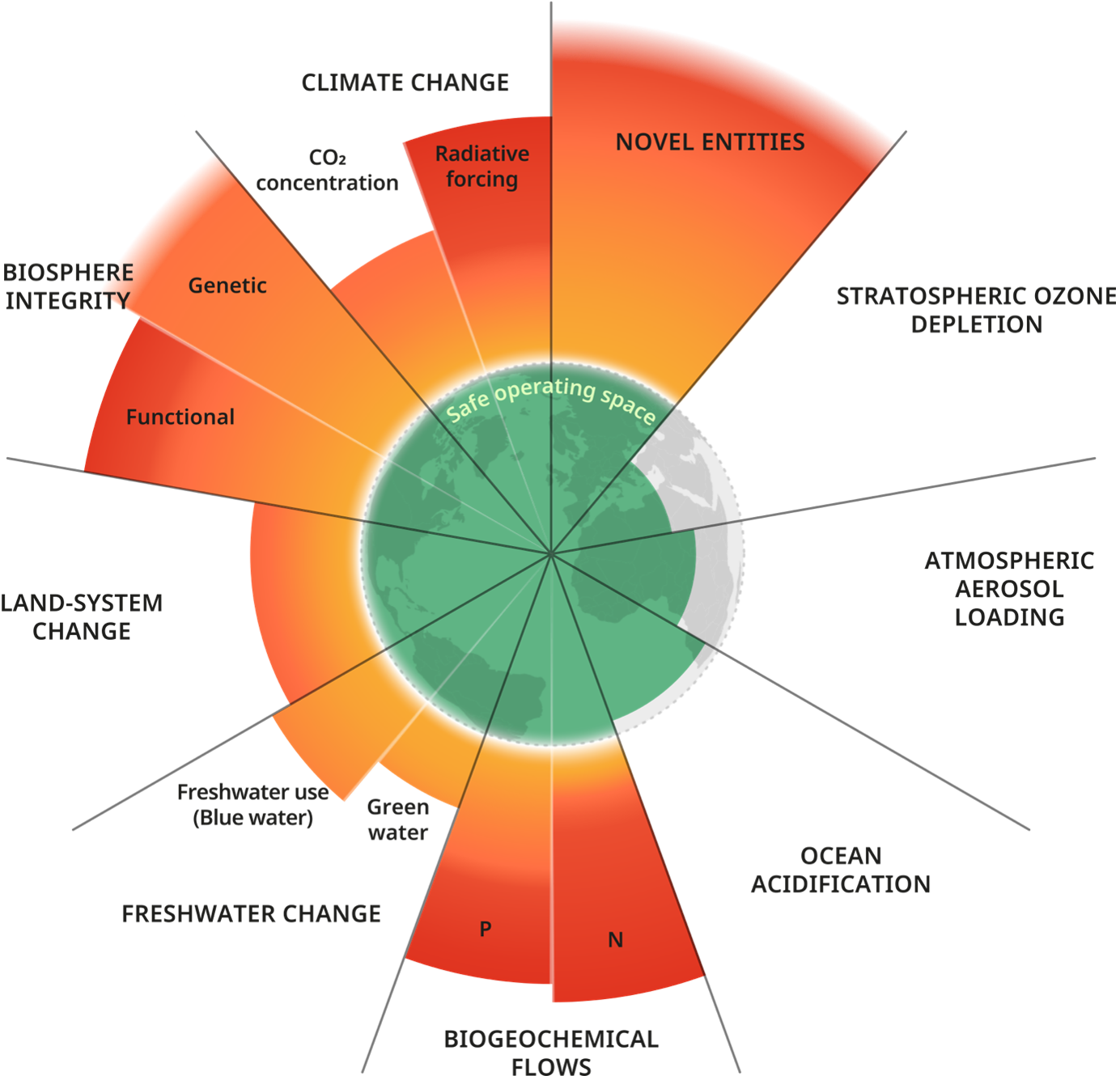We live in an era where industrialisation and the progress of humanity has made us the greatest single source of transformation to life on Earth. We have now left the stable Holocene of the past 12,000 years and are well into the Anthropocene, a new geological epoch named to acknowledge human influence on the state of the planet. The march towards progress however is also a threat to life, for humans and other species. The concept of planetary boundaries, a term coined by the Stockholm Resilience Centre, has emerged as a pivotal framework encapsulating nine critical thresholds, beyond which humanity's survival stands threatened.
Unravelling planetary boundaries
In 2023, scientists quantified all nine boundaries, revealing six are already in the rearview mirror, heightening risks of substantial, potentially irreversible, environmental alterations.
The framework, initiated in 2009, has been updated periodically to reflect new scientific insights. It emphasizes that focusing solely on climate change is insufficient for enhanced sustainability, stressing the importance of understanding the interrelations among various boundaries like biodiversity loss and climate change.

The updated planetary boundaries framework serves as a stark reminder of the escalating anthropogenic impacts on the planet, necessitating urgent and holistic approaches to safeguard Earth's stability and humanity's well-being.
The ocean's distress signal
Central to this discourse is the state of the world's oceans, a mirror reflecting the impact of human activities on the planet's life-support systems. Biochemical flows, primarily nitrogen and phosphorus largely due to agricultural runoff, have led to a phenomenon known as eutrophication. Oceans are the critical life-support systems of the planet, harbouring the majority of the world’s biodiversity and acting as a crucial carbon sink. The grim narrative of eutrophication unfolds as excessive nutrients create algal blooms, that upon decomposition, deplete oxygen levels in water, leading to dead zones. The ramifications are far-reaching, affecting marine ecosystems, fisheries, and local economies. The integrity of the oceans, hence, is not merely a tale of ecological conservation but a linchpin for global sustainability.
An unsafe and unjust trajectory
In another boundary framework, a recent article in Nature quantifies safe and just Earth system boundaries (ESBs) concerning climate, biosphere, water and nutrient cycles with "safe" referring to maintaining Earth system stability and resilience, while "just" is about minimising human exposure to significant harm from Earth system changes. Boundaries have been passed in seven of the eight ESBs.

Visualization of safe ESBs (dark red), just ESBs (blue), cases where safe and just boundaries align (green) and current global states (Earth icons). The further out the Earth is, the worse the situation.
Nitrogen and phosphorus are through the roof. Halting nutrient pollution to stop eutrophication and its toxic effects on marine environments is an urgent need. Not just for the environment, but for human survival too. Humans still require agriculture to eat, energy to keep the lights on and an income to pay the bills. This is why substitutes for resources, especially oil, are needed.
Origin by Ocean's algae chemistry
Origin by Ocean aims to wash the oceans of eutrophication. With our patented biorefining process, we can transform invasive algae, into an arsenal of chemical components. These bio-based compounds, ranging from sodium alginate to laminarin, serve as eco-friendly substitutes for crude oil-derived ingredients that are in every item people use daily. Whether it's the thickening agent in your toothpaste or the fertilisers nourishing the crops, the chemistry of transforming algae into a variety of sustainable products is a testament to Origin by Ocean's commitment to bridging the chasm between economic vitality and ecological stewardship. The voyage towards a sustainable future must be done together, requiring a combination of scientific acumen, innovative enterprise, and sustainable policy frameworks.
The horizon of hope
By reimagining the curse of invasive algae as a resource, we are knitting a narrative of hope, illustrating that the route to staying inside planetary boundaries may well lie in embracing the ocean's untapped potential. Steering the Anthropocene towards a sustainable trajectory calls for systematic efforts to protect, recover, and rebuild planetary resilience.
References:
